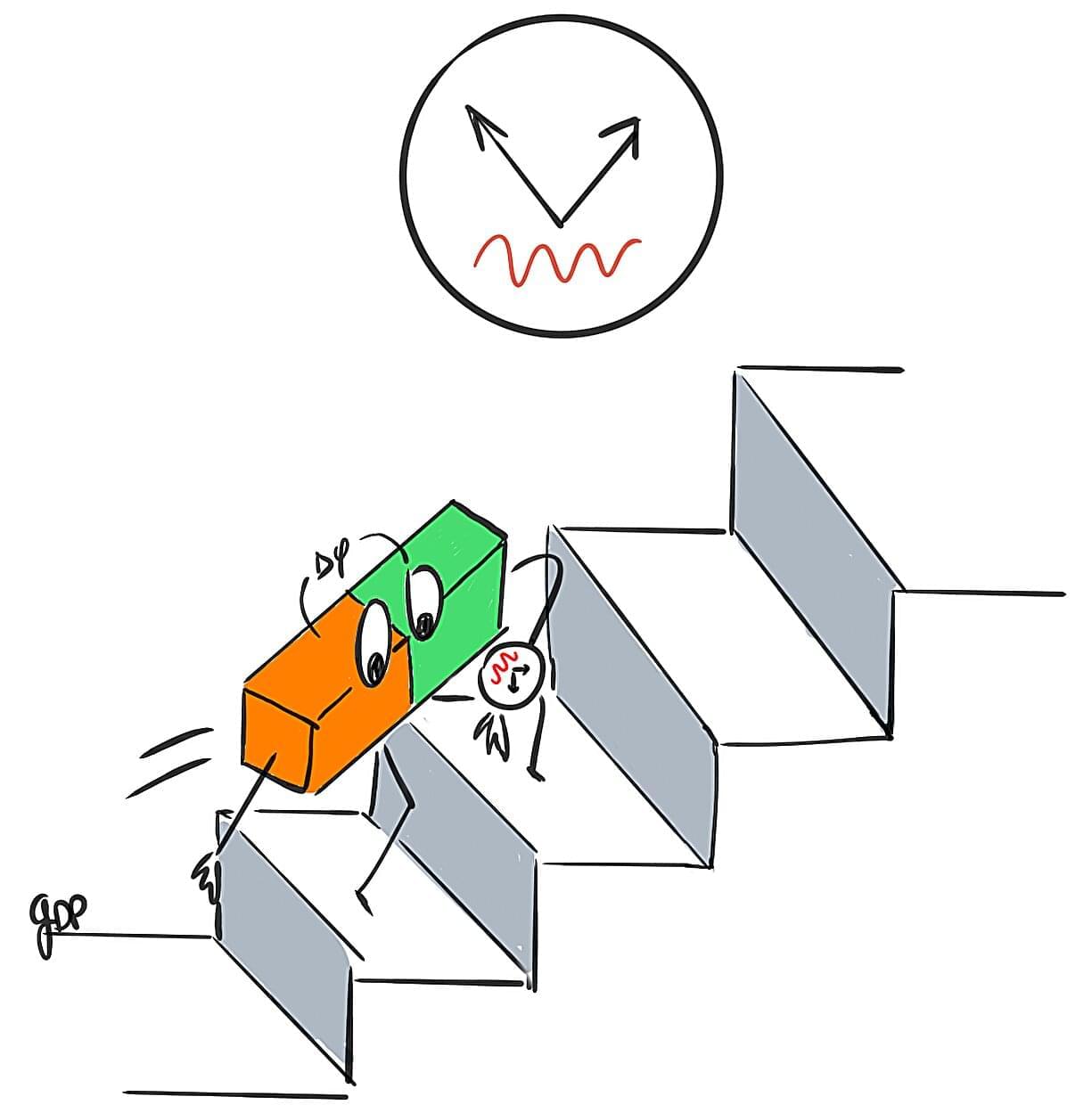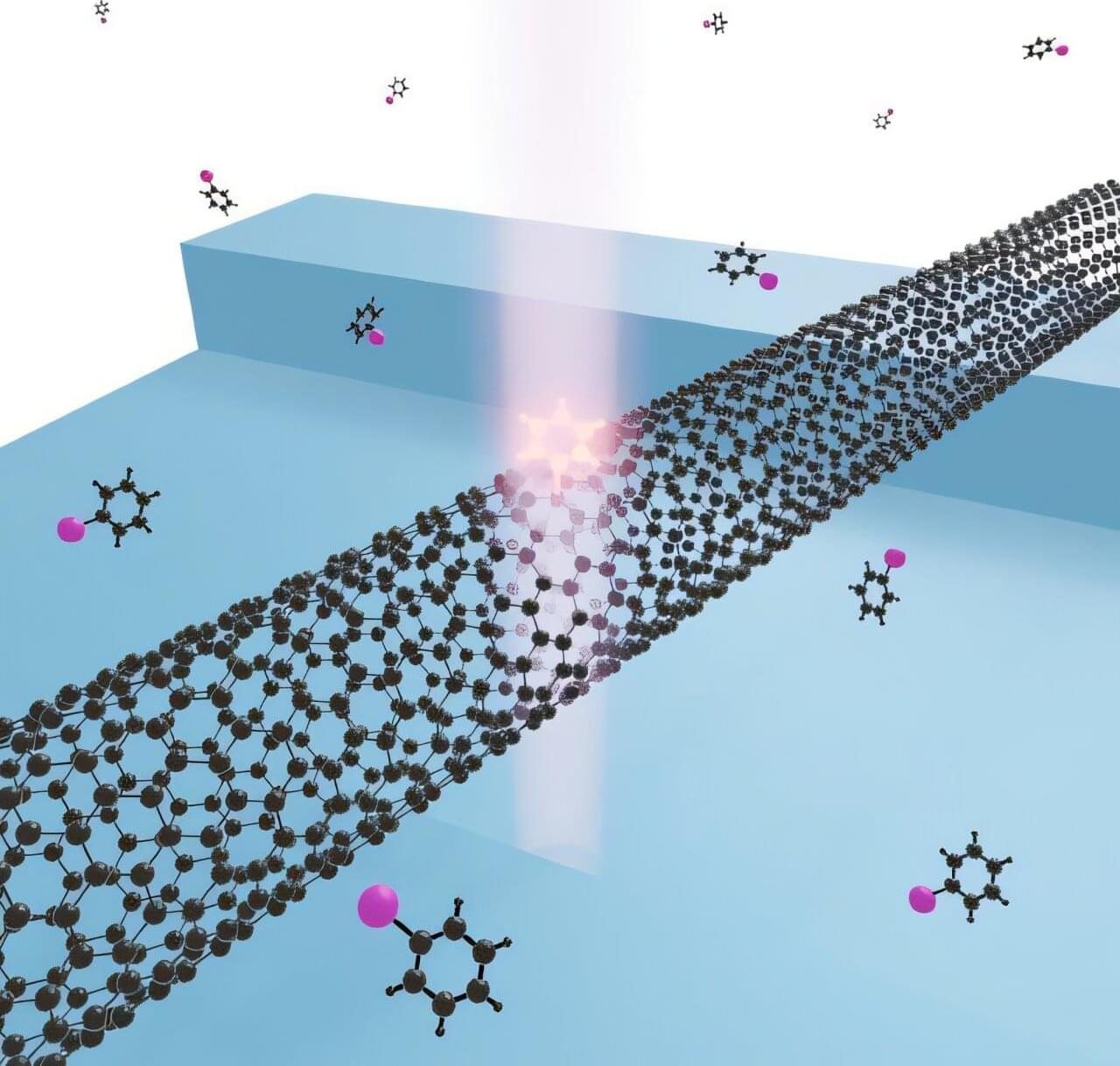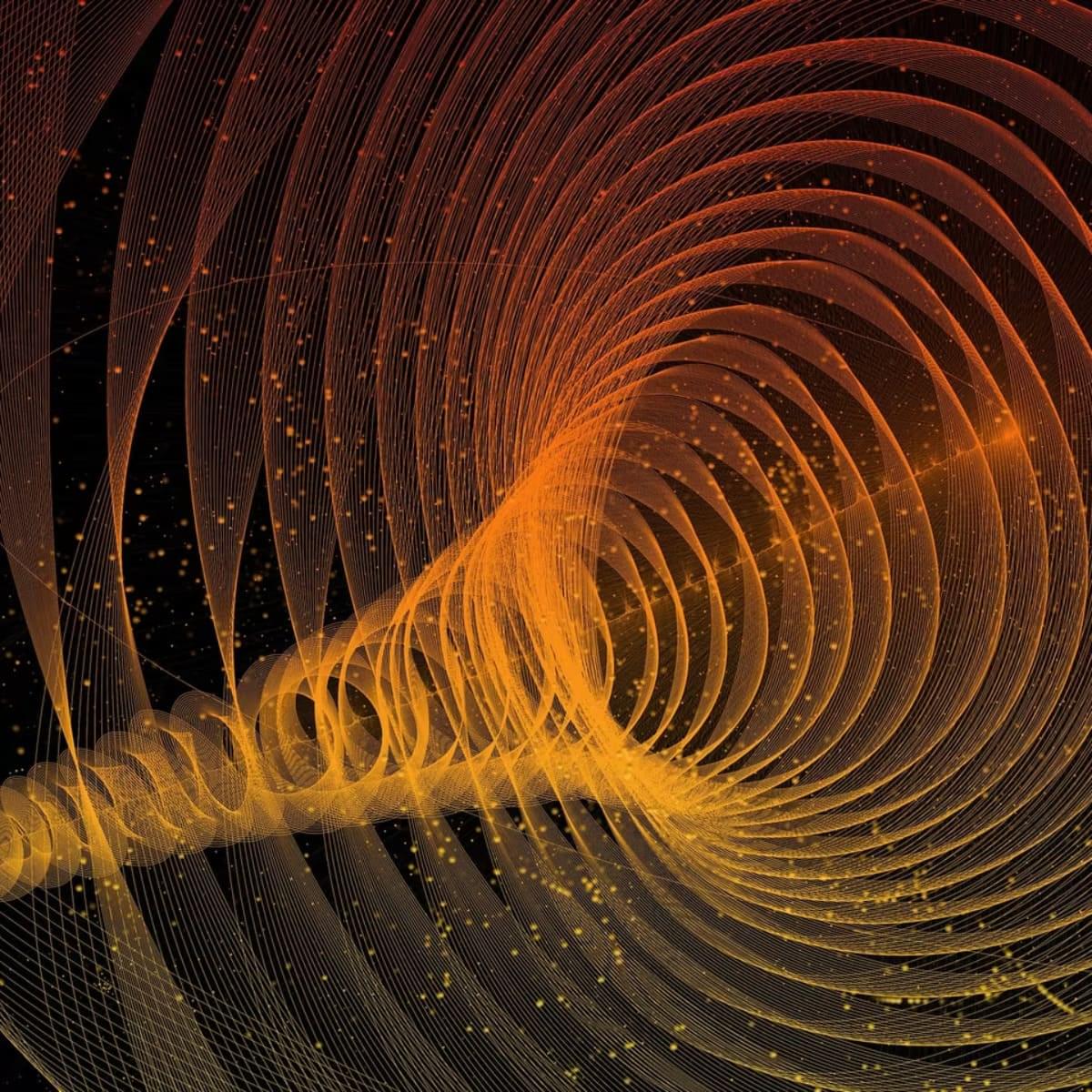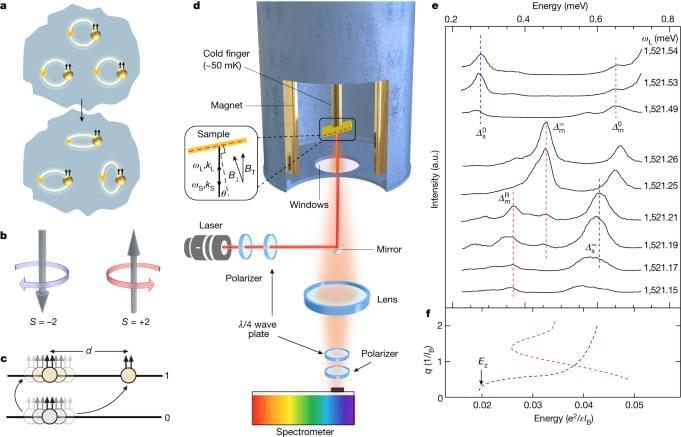Ultracold atoms have successfully mimicked a fundamental quantum effect normally found in electronic circuits.



Physicists have so far failed to unify general relativity and quantum mechanics. As attempts to unite them into a quantum theory of gravity mount up, philosopher of physics Dean Rickles argues that the assumption of materialism is the problem. We need to look beyond the physical—beyond space, time and matter—to something primordial out of which minds can construct physical reality, and which explains both general relativity and quantum mechanics. Pioneers like John Wheeler and David Bohm have already begun to chart what such a realm of “pre-physics” might look like—it’s high time physics took their ideas more seriously.
A pair of recent physics Nobel prizes (2020 and 2022) were awarded for basic research in general relativity (Einstein’s theory of gravitation that explains gravity as the curvature of spacetime by matter and energy) and quantum mechanics (our best bet for a theory of matter and energy). The experimental successes of these theories keep piling up. There is clearly much truth in them. They both aim to describe the same world: this world. They should surely overlap, since the matter and energy described by quantum mechanics should curve spacetime as well as good old-fashioned non-quantum mechanical matter and energy. Why then can we not construct a theory in which they both appear? Why is it so difficult to build what would be a Quantum Theory of Gravity?

Quantum light sources using single-walled carbon nanotubes show promise for quantum technologies but face challenges in achieving precise control over color center formation. Here, we present a novel technique for deterministic creation of single organic color centers in carbon nanotubes using in situ photochemical reaction. By monitoring discrete intensity changes in photoluminescence spectra, we achieve precise control over the formation of individual color centers. Furthermore, our method allows for position-controlled formation of color centers as validated through photoluminescence imaging. We also demonstrate photon antibunching from a color center, confirming the quantum nature of the defects formed. This technique represents a significant step forward in the precise engineering of atomically defined quantum emitters in carbon nanotubes, facilitating their integration into advanced quantum photonic devices and systems.

By Chuck Brooks
Quantum Computing and the Dismantling of Cryptographic Foundations Quantum technology may be the most transformative long-term influence on the horizon. Although large-scale, fault-tolerant quantum computers may remain years from realization, their expected influence is already transforming cybersecurity strategies. As quantum technology advances, the risk of “harvest now, decrypt later” assaults suggests that today’s encrypted sensitive data could become vulnerable in the future.
From 2026 to 2030, enterprises will increasingly recognize that cryptographic agility is vital. The move to post-quantum cryptography standards means that old systems, especially those in critical infrastructure, financial services, and government networks, need to be fully inventoried, evaluated, and upgraded.


For the first time, scientists have observed the iconic Shapiro steps, a staircase-like quantum effect, in ultracold atoms.
In a recent experiment, an alternating current was applied to a Josephson junction formed by atoms cooled to near absolute zero and separated by an extremely thin barrier of laser light. Remarkably, the atoms were able to cross this barrier collectively and without energy loss, behaving as if the barrier were transparent, thanks to quantum tunneling.
As the oscillating current flowed through the junction, the difference in chemical potential between the two sides did not change smoothly, but instead increased in discrete, evenly spaced steps, like climbing a quantum staircase. The height of each step is directly determined by the frequency of the applied current, and these step-like chemical potential differences are the atomic analog of Shapiro steps in conventional Josephson junctions.

Tiny tubes of carbon that emit single photons from just one point along their length have been made in a deterministic manner by RIKEN researchers. Such carbon nanotubes could form the basis of future quantum technologies based on light.
Light is currently used to freight data over long distances via optical fibers. But harnessing its quantum nature could offer several benefits, including unprecedented security since any inception by a third party can be detected.
Such quantum communication technology requires light sources that emit one photon at a time. Several systems are capable of realizing that, but of them carbon nanotubes are the most promising.

For years, the dream of a fully secure quantum Internet has been held back by a single, stubborn obstacle: repeaters. Whenever quantum networks needed them, scientists had to fall back on traditional models — a compromise that opened the door to potential security flaws. But now, researchers have finally filled in the missing piece of the puzzle, bringing the first true quantum relays within reach.
Unlike traditional data systems, quantum communication relies entirely on light. Instead of sending electrical signals, it uses pairs of entangled photons to create an unbreakable secret key between sender and receiver. Theoretically, this makes eavesdropping impossible — any attempt to intercept the signal would immediately destroy it.
Even with its promise of speed and security, quantum communication hasn’t yet reached everyday use. The main challenge lies in preserving quantum information. Only a handful of photons can travel together, and their light signal fades quickly over long distances.

